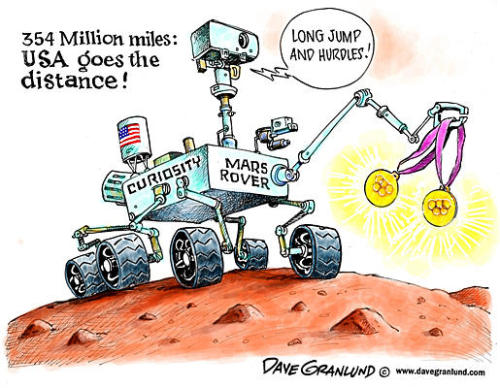Of course, we learn about various scientific explanations--from grand ideas like evolution and big bang, to curious questions like why the penis is shaped the way it is, to everyday puzzles like what happens to the boiling point of water when you go from sea level to higher elevations.
What is behind all that content is the real McCoy. Or, as Joe Biden might put it, the big fucking deal. It is about students learning to doubt and then learning to ask questions in order to figure out the answers.
The most important goal in educating our children should be to encourage them to question everything, to not be satisfied with unsubstantiated claims, and to be skeptical of a priori beliefs, either their own, their parents’, or their teachers’. Encouraging skeptical thinking in this way, as well as directing a process by which questions may be answered—the process of empirical investigation followed by logical reasoning—helps create lifelong learners and citizens who can responsibly address the demands of a democratic society.That is from the talk that the physicist/public-intellectual Lawrence Krauss gave after picking up the 2015 Humanist of the Year award. In fact, Krauss opened the talk with a Richard Feynman quote:
And there is overwhelming evidence that one of the key collateral benefits of a more scientifically literate populace is that the seeds of religious doubt are thereby planted among the next generation.
Permit us to question—to doubt, that’s all—and not to be sure…. It is our responsibility…to proclaim the value of this freedom, to teach how doubt is not to be feared but welcomed and discussed, and to demand this freedom as our duty to all coming generations.To doubt. To question. Two actions that always trouble the establishment, whether it is science or politics or religion. Especially religion, in which one believes without doubting and questioning. A good Christian never doubts Jesus rising three days after he died. In his Hindu faith, my father believes in the gods and godmen whose "miracles" he has even witnessed in person.
Science, on the other hand, makes us think about these very differently. We begin to doubt the claims. We question. We ask for evidence.
The purpose of education may not be to destroy religious belief, but surely, as Richard Feynman alluded to in the quote I opened with, its purpose is to encourage doubt. In that arena we are sorely falling short.We are falling way short.
[An] AP-GfK poll revealed that less than a third of Americans are willing to express confidence in the reality of human-induced climate change, evolution, the age of the earth, and the existence of the Big Bang. Among those surveyed, there was a direct correlation between religious conviction and an unwillingness to accept the results of empirical scientific investigation. Religious beliefs vary widely, of course—not all faiths, or all faithful people, are the same. But it seems fair to say that, on average, religious faith appears to be an obstacle to understanding the world.Krauss offers examples from here in the US. The old country is no different. Well, it is way worse there.
I am so glad that Krauss added this:
Of course, science class isn’t the only place where students can learn to be skeptical. A provocative novel that presents a completely foreign worldview, or a history lesson exploring the vastly different mores of the past, can push you to skeptically reassess your inherited view of the universe.As I have noted in many posts, in my dealings with students, I push them to question their views of the world. "The academy has a far more important and subversive way" of dealing with such issues--the doubt and the questioning are all related to curiosity, and "curiosity is insubordination in its purest form." There is no doubt about that.

